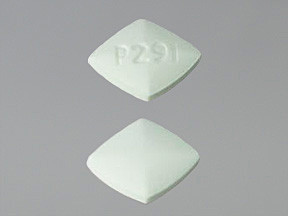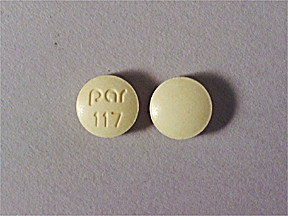AMILORIDE - ORAL
PHONETIC PRONUNCIATION: (a-MIL-oh-ride)
COMMON BRAND NAME(S): Midamor
GENERIC NAME(S): amiloride HCl
Uses
USES: Amiloride is used with other "water pills"/diuretics (such as furosemide, thiazide diuretics like hydrochlorothiazide) to treat high blood pressure (hypertension), heart failure, or extra fluid in the body (edema). Amiloride also helps to treat or prevent low blood potassium levels caused by the other diuretics. Lowering high blood pressure helps prevent strokes, heart attacks, and kidney problems. Amiloride is called a "water pill" (diuretic) and causes your body to get rid of extra salt and water while also preventing the kidneys from getting rid of too much potassium.
How to use AMILORIDE - ORAL
HOW TO USE: Take this medication by mouth with food, usually once daily or as directed by your doctor. If you take this drug too close to bedtime, you may need to wake up to urinate. Therefore, it is best to take this medication at least 4 hours before your bedtime. If you have any questions about how and when to take this medication, ask your doctor or pharmacist. The dosage is based on your medical condition and response to treatment. Use this medication regularly in order to get the most benefit from it. To help you remember, take it at the same time each day. It is important to continue taking this medication even if you feel well. Most people with high blood pressure do not feel sick. Tell your doctor if your condition does not improve or if it worsens (such as your blood pressure readings remain high or increase).
Side Effects
Precautions
Interactions
Overdose
Images
Reviews
Faq for AMILORIDE - ORAL
Amiloride is an oral medication that belongs to a class of drugs known as diuretics (water pills). It helps the kidneys get rid of excess salt and water in the body and is primarily used to treat high blood pressure and fluid retention caused by certain conditions such as congestive heart failure or liver disease.
It is essential to follow the instructions provided by your doctor or medication label. Typically, Amiloride is taken once or twice a day with food or milk to prevent stomach upset. The dosage will vary depending on your medical condition and response to treatment. Do not increase or decrease the dosage without consulting your doctor.
Like any medication, Amiloride may cause side effects. The most common ones include dizziness, headache, nausea, vomiting, stomach pain, and increased urination. If these effects persist or worsen, it is important to contact your doctor promptly. Serious side effects such as high potassium blood levels, signs of dehydration, or allergic reactions are rare but should be reported to a healthcare professional immediately.
Amiloride should be used with caution if you have kidney problems, as it affects the way water and electrolytes are excreted. It is crucial to discuss your kidney function and any other underlying medical conditions with your doctor before starting this medication.
Amiloride may interact with certain medications, including other diuretics, ACE inhibitors, potassium supplements, nonsteroidal anti-inflammatory drugs (NSAIDs), and lithium. These interactions can modify how Amiloride works or increase the risk of side effects. Therefore, it is essential to inform your doctor about all the medications you are taking to avoid any potential interactions.
Warning
WARNING: This medication can cause high potassium levels (hyperkalemia). This effect is more likely to occur in older adults and in patients with kidney disease, diabetes, or a serious illness. Potassium levels must be closely monitored on a regular basis while taking this medication. If not treated, very high potassium levels can sometimes be fatal. Tell your doctor right away if you develop any symptoms of high potassium levels, including muscle weakness, slow/irregular heartbeat, numb/tingling skin.
Disclaimer
IMPORTANT: HOW TO USE THIS INFORMATION: This is a summary and does NOT have all possible information about this product. This information does not assure that this product is safe, effective, or appropriate for you. This information is not individual medical advice and does not substitute for the advice of your health care professional. Always ask your health care professional for complete information about this product and your specific health needs.



No Reviews Yet